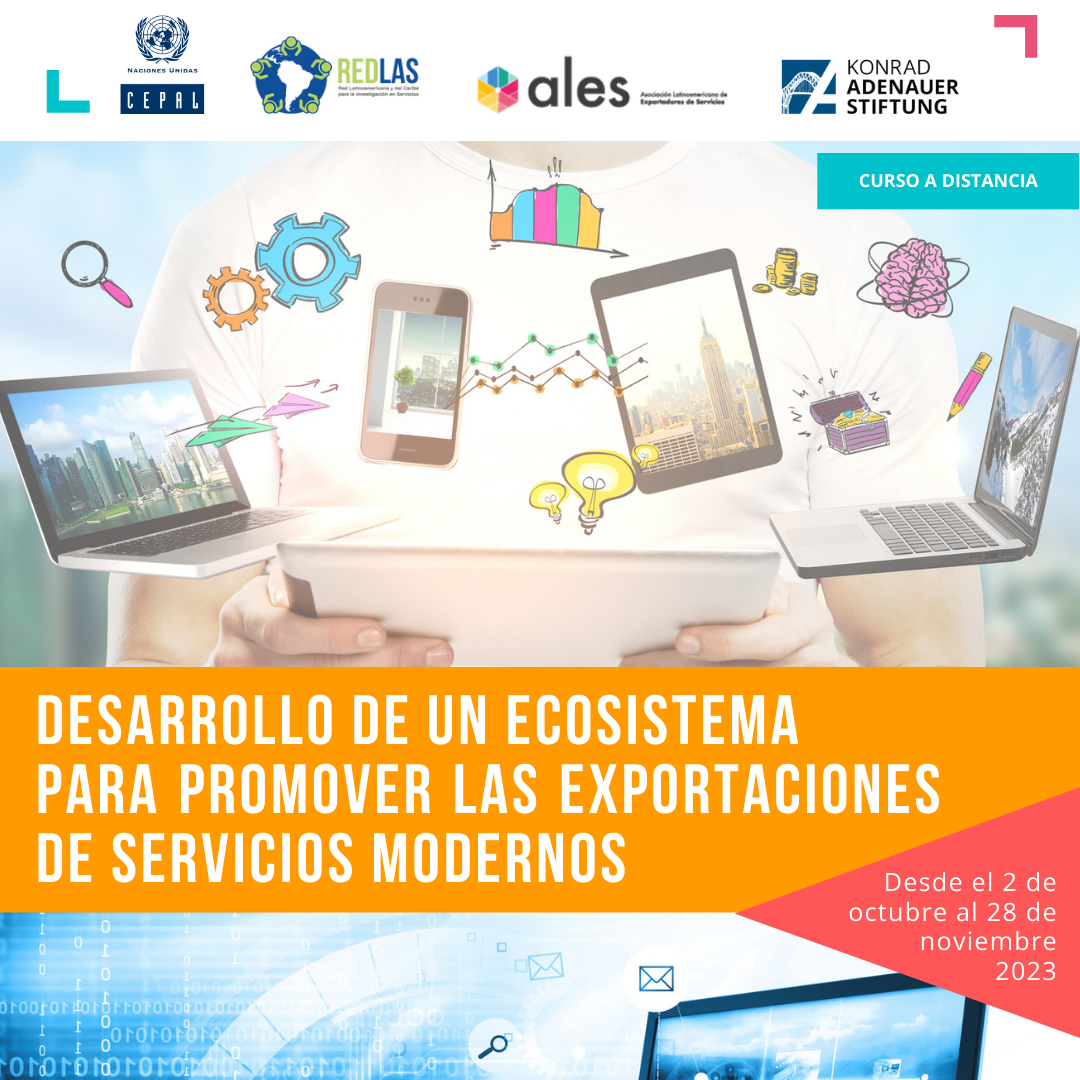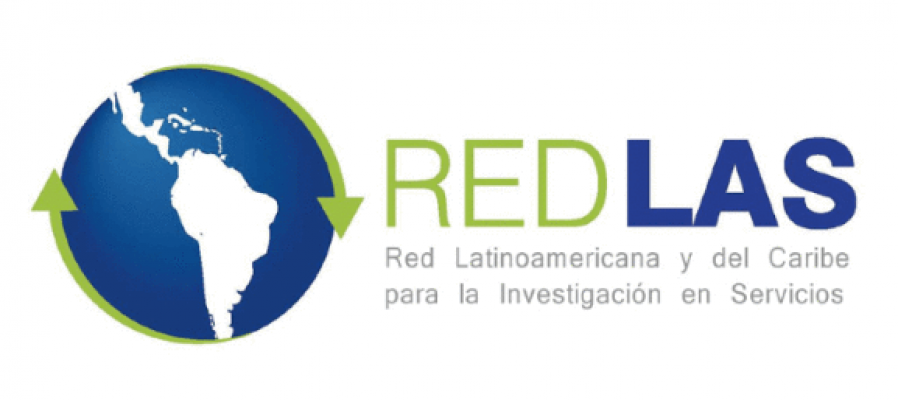Online seminar
Details
During the last three decades, the trade in services has grown significantly, now representing almost half of international trade measured in value-added and nearly one-fourth in gross values. Several factors have contributed to its expansion, including the dissemination of Information and Communication Technologies (ICT) and the dematerialization of the economy.
Services also account for the majority of GDP, employment, and Foreign Direct Investment (FDI). Many activities, with the notable exception of tourism, have demonstrated resilience during the economic and health crisis resulting from the COVID-19 pandemic. Modern services, also known as global services or knowledge-based services, are the most dynamic category. These activities are facilitated by ICT and digitization.
Despite the progress in the quantity and quality of exporters of modern services in the region, Latin America and the Caribbean account for less than 2% of global service exports. Several elements explain this weak regional performance: a scarcity of skilled labor for advanced services, a lack of proper coordination between government institutions and private sector articulation (governance), weak specialized initiatives to support exporting companies, the effects of double taxation, limited tax incentives, and a regulatory framework that does not facilitate these types of activities.
In this context, CEPAL, REDLAS, ALES, and ADELA have created this course to strengthen the capacities of governments in the region to improve the ecosystem for promoting exports of modern services. The course includes several pillars developed in different modules.
Course Objectives:
Strengthen the knowledge and capabilities of those designing and managing public policies to improve the ecosystem for promoting exports of modern services, aiming for better international integration of companies in the sector.
Methodology:
The course will be delivered through six one-week modules on a virtual platform, combining asynchronous activities with synchronous virtual meetings. Each module includes reading materials, tutorial videos, and recorded interviews with key actors in the modern services ecosystem.
During the course, participants can ask questions or make comments in a consultation forum. Expert facilitators will follow up on the activities to ensure smooth development of the topics.
Each week, a synchronous virtual meeting will be held via Zoom, led by the expert facilitator, with the objectives of addressing participants' doubts and questions, discussing highlighted content, and sharing experiences. These synchronous meetings are also expected to serve as networking activities among participants, facilitating future learning exchanges.
At the end of each week, a small examination consisting of multiple-choice questions will be available, and participants will have two weeks to complete it. Recommended readings will also be provided, allowing participants to delve into topics of particular interest or relevance to their roles and/or activities. The course will be conducted in Spanish.
Participants Profile:
The course is aimed at officials and professionals from public institutions and the private sector responsible for formulating and/or managing policies to promote the trade of modern services, including:
- Ministries of Finance/Economy
- Financial regulatory entities (Central Bank, Financial Superintendent)
- National Development Banks (financing)
- Ministries of Economy, Industry, and Commerce
- Ministries/Secretariats of ICT, Science, and Technology
- Telecommunications Superintendence/Commission
- Customs Agencies and related control organizations
- Agencies for SMEs' Development
- Export and Investment Promotion Agencies
- Chambers of Commerce/Exporters' Associations
- E-commerce and/or ICT Chambers
Applications:
All interested applicants for this course should:
- Complete an application form available in the course information brochure.
- Send a letter of recommendation from their employer to Alejandro Marin: alejandro.marin@kas.de explaining why this course would support the professional development of the participant and the institution's work.
Applications will be accepted until September 20, 2023. Backgrounds received after this date will not be considered in the selection process. After that date, confirmation of acceptance into the course, by the selection committee, will be sent via email to those who have been selected.
For more information about the course, it can be found in the digital brochure available on the right side of the page.
Download the agenda: Desarrollo Ecosistema promover exportaciones servicios






